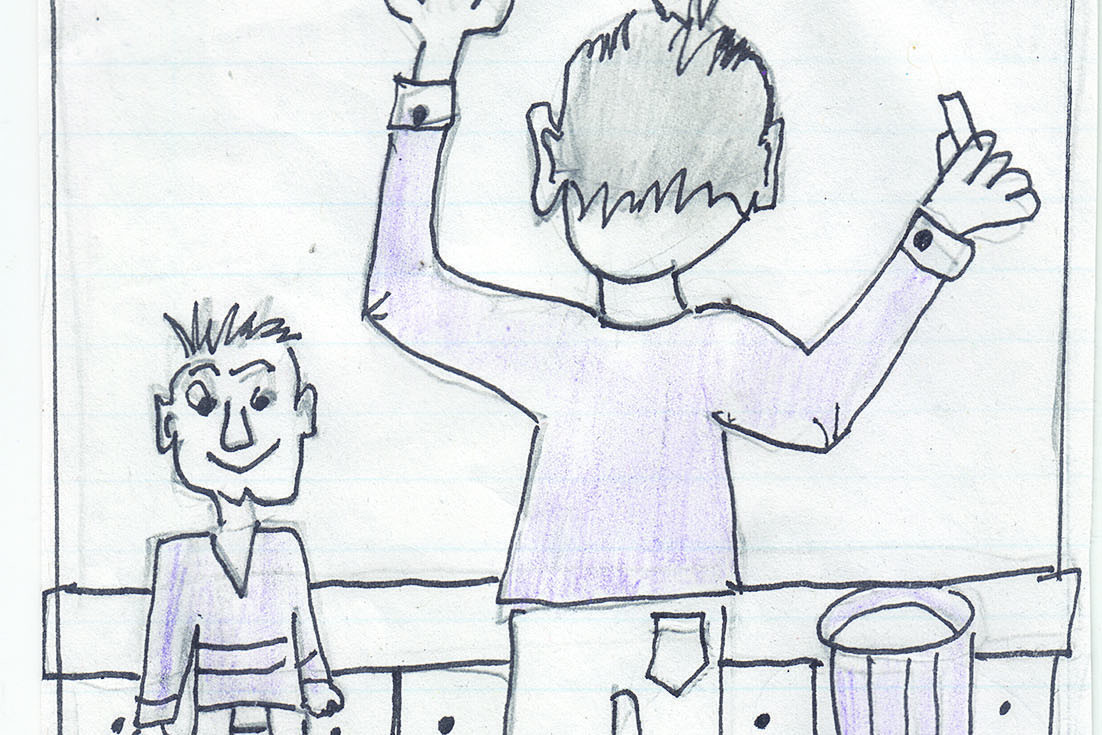General News
13 June, 2025
Bill Richardson: A wonderful role model — with Brian Lennen
As we travel through life we have the good fortune to encounter some people who have a lasting effect on our lives.

Teaching is a profession that involves the privilege of dealing with the most precious resource any society has — its children.
Bill Richardson, a colleague at PS 404 in the 1960s made me aware of this totally.
I had the good fortune to spend two terms sharing a class with Bill.
Bill was a tall, thin character with sharp features not unlike my childhood hero, Basil Rathbone, who starred in the brilliant productions of Sherlock Holmes (still masterpieces) and as the villainous Sheriff of Nottingham opposed to Errol Flynn’s Robin Hood.
Bill had faced the loss of his wife during the previous year which weighed heavily on him, but he was indomitable.
Above all else Bill’s love of humanity and especially children was always demonstrative.
He always saw the best in people and made sure every student was aware they had special talents and could make their contribution to society.
When Bill was telling a story or addressing the class we were all enthralled and felt a warmth and feeling of inclusion.
Bill had many talents which are etched into my subconscious.
In the 1960s classrooms were poorly resourced.
Ink and dip pens were supplied with ink wells (no biros were available).
Two and sometimes three students were seated in cramped desks.
Blotting paper was necessary to avoid the ink being splattered. These were challenges for many students.
Bill’s work program (a compulsory part of teaching) was a work of art.
Using various coloured inks and “old English” headings, they were “works of art”.
He coloured his illustrations in pencil and glossed them with blotting paper.
Talking in the classroom after the kids had departed I was gobsmacked to watch Bill write in copperplate the most perfect writing without a line to guide him.
He had sheets with dotted outlines of world maps and Australian animals, etc. You held the sheet on the boards and patted it with chalk dust leaving a perfect outline.
Bill raised some mundane tasks to a new level. Some of the monitor’s roles at the end of a winter’s day included the fire place needing to be cleaned out. The ashes were transported to the incinerator and the fireplace was set with newspaper and kindling for the next day.
Ink powder was mixed with water and the ink wells were filled using a long-necked rubber pourer.
The school milk bottles were collated and stacked outside on Wellington Street.
A daily inspection of the children’s book work was conducted and never was a piece of the children’s work left uncorrected.
Bill believed that all the children’s work had to be corrected and advice written on it.
The meagre sporting equipment was put in the cupboards.
Air was pumped into flat balls and leather patches were applied to some. The skipping ropes were unravelled.
Bill could recite almost all the poetry of the Australian masters (Banjo Paterson, Henry Lawson and CJ Dennis).
The day always finished with a continued serial story of a classic — “The Hobbit” and “I Can Jump Puddles” were particular favourites.
I have endeavoured to match some of Bill’s talents, particularly storytelling and calligraphy with a modicum of success.
Tunnel-ball, cross-ball and potato relays were highly competitive and well drilled team sports which required hard training and special skills.
Bill coached the senior girls to victory at a regional level.
The girls’ dedication was a revelation, practising at every available moment.
Unfortunately Bill didn’t return after a holiday break, as he collapsed and passed away while shopping down the street.
Apart from his effect on his students, Bill had a lasting effect on me, his uncertain apprentice.
During my over 50 years of teaching, Bill’s example prevails.